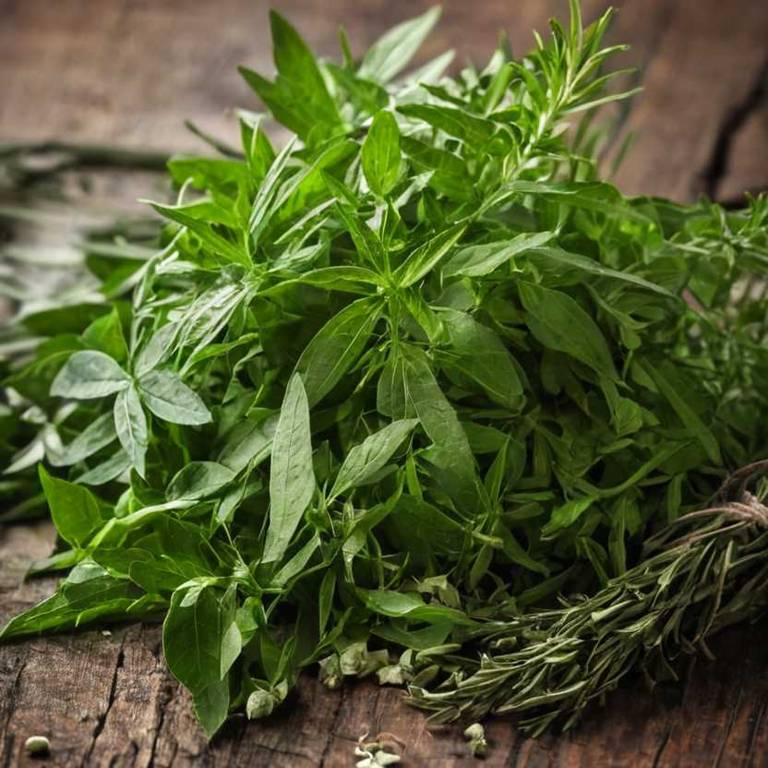10 Best Cananga Odorata Preparations

The best medicinal preparations of Cananga odorata are teas, decoctions, tinctures, oils, and essential oils, each offering unique therapeutic benefits.
Teas made from dried flowers are commonly used to promote relaxation and reduce stress.
Decoctions involve boiling the plant material to extract its active compounds, often used for digestive support.
Tinctures provide a concentrated form of the herb, useful for addressing anxiety and insomnia.
Essential oils derived from the flowers are widely used in aromatherapy for their calming and mood-enhancing properties.
Below there's a list of the 10 best herbal preparations of cananga odorata for medicinal purposes.
1. Teas
Cananga odorata teas is commonly used to promote relaxation, alleviate stress, and improve sleep quality.
This herbal preparation is also used to treat ailments such as anxiety, insomnia, and digestive issues. The most common medicinal uses include calming the nervous system and reducing symptoms of depression. The bioactive constituents responsible for these effects include compounds like linalool, myrcene, and eugenol, which have sedative, anti-inflammatory, and antimicrobial properties.
These components work together to provide the therapeutic benefits associated with Cananga odorata teas.

2. Decoctions
Cananga odorata decoctions is commonly used to treat various ailments such as anxiety, insomnia, and inflammation due to its calming and anti-inflammatory properties.
These decoctions are often employed in traditional medicine to alleviate symptoms of stress and promote relaxation. The most common medicinal uses include reducing symptoms of nervousness, improving sleep quality, and managing inflammatory conditions like arthritis. The bioactive constituents responsible for these effects include compounds such as alkaloids, flavonoids, and essential oils, which possess antioxidant, sedative, and anti-inflammatory properties.
These components work synergistically to provide the therapeutic benefits associated with Cananga odorata decoctions.

3. Tinctures
Cananga odorata tinctures is commonly used to treat a variety of ailments, including anxiety, insomnia, and inflammation.
These tinctures are often employed in traditional medicine to promote relaxation and improve sleep quality. They are also used to alleviate symptoms of depression and stress-related disorders. The bioactive constituents responsible for these effects include compounds such as sesquiterpene lactones, alkaloids, and flavonoids, which have anti-inflammatory, anxiolytic, and neuroprotective properties.
Additionally, the essential oils extracted from the plant contribute to its calming and therapeutic effects.

4. Oils
Cananga odorata oils is commonly used to treat a variety of ailments, including respiratory conditions, skin disorders, and stress-related symptoms.
These oils are widely utilized in aromatherapy and traditional medicine for their calming and therapeutic effects. The most common medicinal uses include alleviating anxiety, reducing inflammation, and improving skin health. The bioactive constituents responsible for these properties include compounds such as sesquiterpenes, monoterpenes, and phenolic compounds.
These compounds contribute to the oil's anti-inflammatory, antimicrobial, and sedative effects.

6. Capsules
Cananga odorata capsules is commonly used to treat various ailments such as anxiety, insomnia, and inflammation due to its calming and anti-inflammatory properties.
These capsules are often utilized in traditional medicine to alleviate symptoms of stress and promote relaxation. The most common medicinal uses include managing nervous disorders, reducing pain, and improving sleep quality. The bioactive constituents responsible for these effects include compounds like sesquiterpenes, flavonoids, and alkaloids, which have antioxidant, anti-inflammatory, and sedative properties.
These compounds work synergistically to provide the therapeutic benefits associated with Cananga odorata.

7. Creams
Cananga odorata creams is commonly used to treat skin conditions, inflammation, and as a natural remedy for pain relief.
These creams are often applied topically to alleviate symptoms of eczema, psoriasis, and arthritis due to their anti-inflammatory and analgesic properties. The most common medicinal uses include reducing skin irritation, promoting wound healing, and easing joint pain. The bioactive constituents responsible for these effects include compounds like isoquinoline alkaloids, flavonoids, and essential oils, which possess antioxidant, anti-inflammatory, and antimicrobial activities.
These properties make Cananga odorata a valuable ingredient in traditional and modern herbal medicine.

8. Syrups
Cananga odorata syrups is commonly used to treat respiratory conditions, anxiety, and insomnia due to its calming and soothing properties.
The most common medicinal uses of this herbal preparation include alleviating symptoms of asthma, bronchitis, and other respiratory ailments, as well as reducing stress and promoting better sleep. It is also used in traditional medicine to address digestive issues and as a natural remedy for headaches. The bioactive constituents responsible for these effects include compounds such as coumarins, alkaloids, and essential oils, which have anti-inflammatory, sedative, and bronchodilatory properties.
These active components work together to provide the therapeutic benefits associated with Cananga odorata syrups.

9. Lozenges
Cananga odorata lozenges is commonly used to alleviate symptoms of respiratory infections, sore throat, and cough due to their antiseptic and anti-inflammatory properties.
These lozenges are often employed in the treatment of ailments such as bronchitis, laryngitis, and common colds. The bioactive constituents responsible for these medicinal effects include essential oils like alpha-pinene, beta-caryophyllene, and myrcene, which have antimicrobial and analgesic activities. Additionally, compounds such as flavonoids and phenolic acids contribute to its anti-inflammatory and immune-boosting properties.
This herbal preparation is valued for its natural ability to soothe irritated mucous membranes and reduce throat discomfort.

10. Oinments
Cananga odorata oinments is commonly used to treat skin conditions, inflammation, and musculoskeletal pain.
These oinments are often applied topically to alleviate symptoms of eczema, psoriasis, and arthritis. The medicinal properties of Cananga odorata are attributed to its bioactive constituents, such as sesquiterpene lactones, flavonoids, and essential oils. These compounds possess anti-inflammatory, antimicrobial, and analgesic effects.
Due to their therapeutic benefits, Cananga odorata oinments are widely used in traditional medicine across various cultures.
